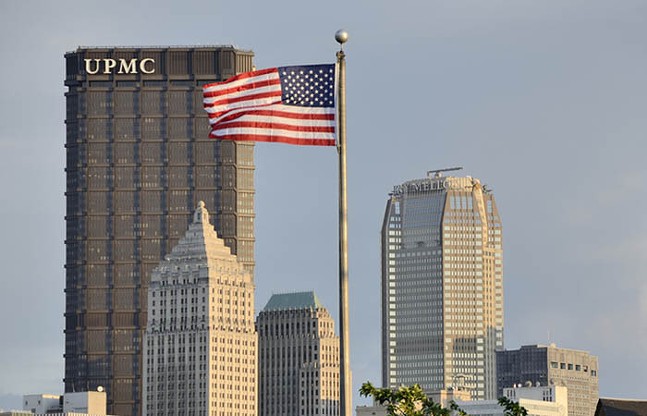Pittsburgh officials announced today the city is preparing to contest the tax-exempt status of 26 parcels owned by non-profit organizations including UPMC, the University of Pittsburgh, Carnegie Mellon University, and the Allegheny Health Network.
“We are here to protect the tax base and make sure everybody pays their fair share,” Mayor Ed Gainey said during a March 28 press conference announcing the challenges.
Gainey announced in January his administration would take steps to review non-profit tax exemptions which, he said, shields approximately a third of all city real estate from property tax payments. He noted then the process could take years to complete.
Two months later, Gainey says his office has reviewed about 10% of all tax-exempt properties and is committed to evaluating all of the remaining parcels. City Solicitor Krysia Kubiak said those identified so far represent approximately $3.5 million in annual tax revenue.
Pennsylvania law allows non-profits to claim tax exemptions on properties assuming they align with the organization's charitable mission. Critics argue pay-to-use parking lots and other forms of property used to generate revenue should not qualify.
“I made a promise to the people when I ran that in this city, we would be able to do the necessary work to ensure that all of our nonprofits meet their constitutional standard,” Gainey said.
Having identified the first slate of parcels, Kubiak said, the county must make its own assessment before hearings are scheduled to determine each case. Lengthy appeals processes could then play out in the court of common pleas.
“I hope that they work as diligently as we did and they uphold what we know to be true,” Gainey said.
Before Gainey committed to the city-wide review, citizens and watchdog groups have for years demanded stronger oversight of the city’s non-profit entities that enjoy a range of property and operating tax breaks.
Pittsburgh is home to multiple universities, museums and healthcare systems — some of which oversee sizable real estate portfolios. At the center of the public criticism is healthcare behemoth UPMC, which employs about 92,000 workers and operates an annual budget of more than $20 billion.
Following Gainey’s press conference today, Pittsburgh United’s Economic Justice Organizer Dan Davis issued a statement acknowledging the administration’s work as “a major step in the right direction,” but urging that they “leave no stone unturned” as they continue to review.
“UPMC has cheated our city for decades, using their charity status as a shield to deprive Pittsburghers of the tax dollars we are owed to reinvest in our transit, infrastructure, and schools,” Davis said.
UPMC did not immediately respond to a request for comment.


